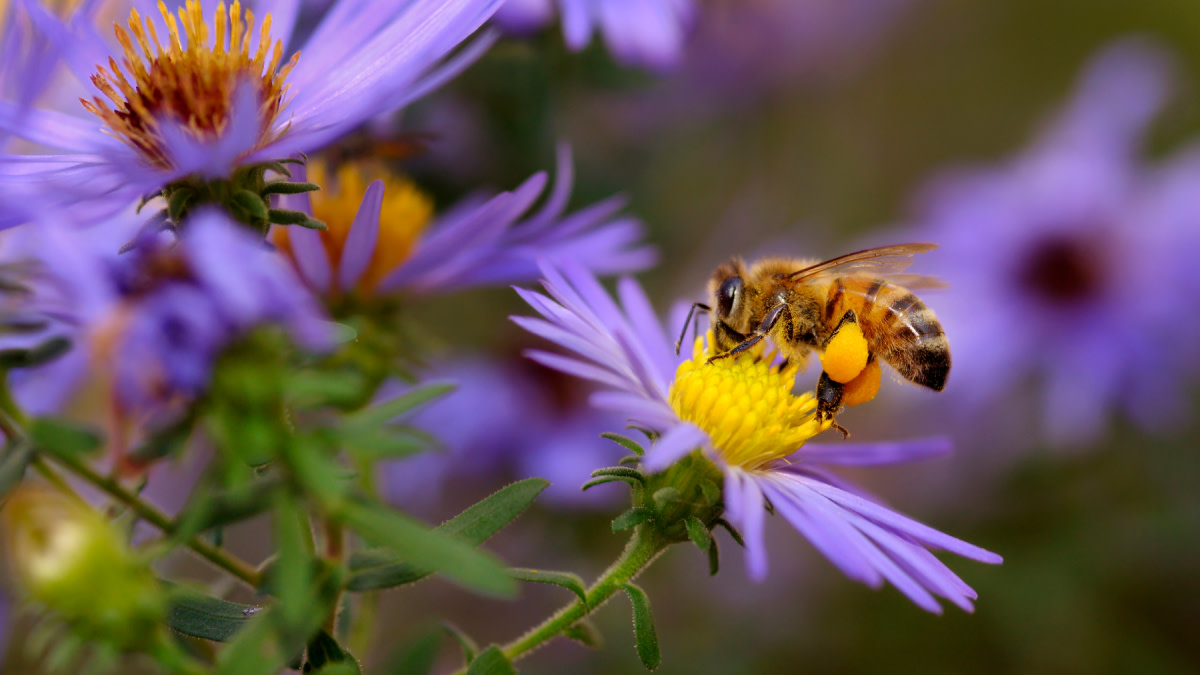
There are many mosquito killer plant varieties that can be purchased and placed outside. Some plants work better in containers, while others are more efficient than others. Mosquitoes love humid environments. You can grow some mosquito repelling plants in your yard if the humidity is high. The following are some examples of plants that will keep mosquitoes away:
Lavender. Lavender is a natural insect killer. This fragrant flower has been shown to attract beneficial pollinators while keeping pests away. The lavender plant repels mosquitoes. It is also a good choice for beneficial pollinators. Explore the available options to find the perfect mosquito killer. Consider growing several of these if you are unable to find the one you prefer.

Lemon Balm. This herb is also known by the name horsemint and is a popular insecticide. The strong lemon scent makes it repellent to mosquitoes. Plus, it's a good culinary addition. The aromatic leaves of this mint plant can also be used to prepare herb butters, poultry stuffing mix, and other recipes. You can spread it easily from its roots and rhizomes, so it is a good idea to keep it leash when you are going to be using it outside.
Citronella. Its fragrance and oily leaves release compounds that are highly repellent to mosquitoes. Many of these plants can also be used to repel insects and provide companion plants for other garden species. They can help reduce the number mosquitoes in your area when used together with other preventative methods. It doesn’t matter which kind of plant it is, you’ll be delighted with its versatility. If you're looking for an ideal mosquito killer plant for your garden, don't overlook basil.
Citronella is a natural insect repellent that can be planted in your yard. The strong, sweet scent of these plants is attractive to mosquitoes. They can be put in sunny areas as they are drought-tolerant. Other mosquito-killing plants can also be planted. In your yard you can plant a geranium. This plant will repel most pests, including mosquitoes.

Other repellents for plants can also be effective. Citronella, a Poaceae member, contains citral and geraniol, essential oils that are commonly used in insect repellents. Citronella is also an excellent repellent for moths, which means you'll never have to suffer through the annoying bites from these pesky pests. It is essential to maintain your mosquito-killing plant.
FAQ
Is it possible to grow vegetables indoors?
Yes, it is possible to grow vegetables in a greenhouse during winter. You will need to get a grow light or greenhouse. Before buying a greenhouse, check with your local laws.
How often should I water my indoor plants?
Indoor plants need to be watered every two days. The humidity inside your house can be maintained by watering. For healthy plants, humidity is vital.
What should you do first when you start a garden?
The first step to starting a garden is to prepare it. This involves adding organic matter, such as composted soil, grass clippings and leaves, straw or other material, to help provide nutrients for the plants. Next, plant the seeds or seedlings in the holes. Finally, make sure to water thoroughly.
Which seeds should start indoors?
A tomato seed makes the best seed for indoor planting. Tomatoes are easy to grow, and they produce fruit all year round. It is important to be careful when planting tomatoes in containers. Planting tomatoes too early can lead to soil drying out which could lead roots to rot. Plant diseases like bacterial disease can quickly kill plants.
What is your favorite vegetable garden layout?
It is important to consider where you live when planning your vegetable garden. For easy harvesting, you can plant vegetables together if the area is large. If you live in rural areas, space your plants to maximize yield.
What is a planting schedule?
A planting calendar is a list of plants that should be planted at different times throughout the year. The goal of a planting calendar is to maximize plant growth and minimize stress. For example, early spring crops like lettuce, spinach, and peas should be sown after the last frost date. Spring crops later include squash, cucumbers, summer beans, and squash. Fall crops include cabbage, potatoes, cauliflower, broccoli and cauliflower.
How many hours of light does a plant need?
It all depends on what kind of plant you have. Some plants need 12 hours of direct sun per day. Others prefer 8 to 10 hours of indirect sun. Vegetables require at least 10 hours of direct sunlight per 24-hour period.
Statistics
- It will likely be ready if a seedling has between 3 and 4 true leaves. (gilmour.com)
- 80% of residents spent a lifetime as large-scale farmers (or working on farms) using many chemicals believed to be cancerous today. (acountrygirlslife.com)
- According to a survey from the National Gardening Association, upward of 18 million novice gardeners have picked up a shovel since 2020. (wsj.com)
- Most tomatoes and peppers will take 6-8 weeks to reach transplant size so plan according to your climate! - ufseeds.com
External Links
How To
How can I keep my vegetable garden weed-free?
The biggest threat to the growth of healthy vegetables is weeds. They compete for water, nutrients, sunlight, and space. To prevent them from taking over your garden, use these tips:
-
Take out all flowering plants
-
Be sure to remove any debris or leaves from the base.
-
Use mulch
-
Get water regularly
-
Rotate crops
-
Don't let the grass grow too long
-
Keep soil moist
-
Plant early
-
Harvest often
-
Add compost
-
Avoid using chemical pesticides
-
Get organic vegetables
-
Heirloom seeds available
-
Start small
-
Learn about companion planting
-
Be patient
-
Enjoy gardening!